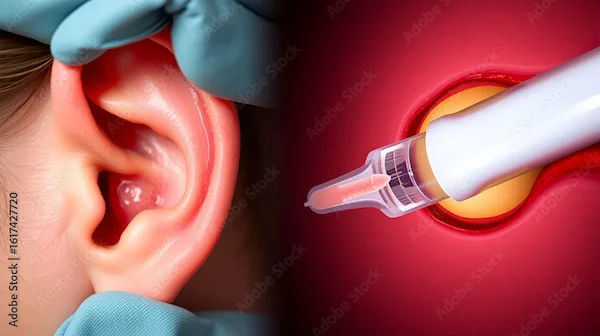Postmenopause Signs and Symptoms Overview
Explore the common signs, symptoms, and long-term health risks of postmenopause. Learn tips on managing changes, improving well-being, and when to consult a doctor.

Written by Dr. Rohinipriyanka Pondugula
Reviewed by Dr. D Bhanu Prakash MBBS, AFIH, Advanced certificate in critical care medicine, Fellowship in critical care medicine
Last updated on 25th Aug, 2025

Menopause is a natural phase in a woman’s life, marking the end of her menstrual cycles. Once a woman has gone 12 consecutive months without a period, she enters postmenopause. While the transition can bring relief from some symptoms, postmenopause may also introduce new health considerations.
If you or a loved one is navigating this stage, understanding the signs, symptoms, and ways to stay healthy can make a big difference. Let’s explore what postmenopause means and how to manage it effectively.
What is Postmenopause?
Postmenopause is the stage after menopause, when the body has adjusted to lower levels of estrogen and progesterone. While some symptoms of menopause may fade, others may persist or new ones may appear.
Key Differences Between Menopause and Postmenopause
Menopause: The transitional phase with symptoms like hot flashes, irregular periods, and mood swings.
Postmenopause: The years following menopause, where symptoms may stabilize but long-term health risks (like osteoporosis and heart disease) become more relevant.
Common Postmenopause Symptoms
Every woman’s experience is different, but here are some common signs of postmenopause:
1. Vaginal Dryness & Discomfort
Due to lower estrogen, vaginal tissues may become thinner, drier, and less elastic, leading to discomfort during intimacy.
Tip: Water-based lubricants or doctor-recommended vaginal moisturizers can help.
2. Hot Flashes & Night Sweats (May Continue or Decrease)
Some women still experience hot flashes, though they usually become less frequent over time.
Tip: Wear breathable fabrics, keep your bedroom cool, and avoid spicy foods or caffeine before bed.
3. Mood Changes & Fatigue
Hormonal shifts can affect mood, leading to irritability, anxiety, or mild depression.
Tip: Regular exercise, meditation, and staying socially active can boost mood.
4. Sleep Troubles
Night sweats or hormonal changes may disrupt sleep.
Tip: Establish a bedtime routine, limit screen time before sleep, and try relaxation techniques.
5. Weight Gain & Slower Metabolism
Hormonal changes can make it easier to gain weight, especially around the abdomen.
Tip: Focus on a balanced diet with lean proteins, fiber, and strength training exercises.
6. Bone Loss (Osteoporosis Risk)
Lower estrogen increases the risk of weaker bones and fractures.
Tip: Get enough calcium, vitamin D, and weight-bearing exercises (like walking or yoga).
7. Urinary Issues
Weakened pelvic muscles may lead to urinary incontinence (leakage when coughing or sneezing).
Tip: Kegel exercises can strengthen pelvic muscles.
8. Skin & Hair Changes
Skin may become drier, and hair may thin due to hormonal shifts.
Tip: Stay hydrated, use gentle skincare, and eat protein-rich foods.
Long-Term Health Risks in Postmenopause
Since estrogen plays a protective role in heart and bone health, postmenopausal women should be mindful of:
Heart Disease (Higher risk due to changing cholesterol levels)
Osteoporosis (Bones become more fragile)
Higher Blood Pressure
Increased Risk of Diabetes
Prevention Tips:
Eat a heart-healthy diet (fruits, vegetables, whole grains, lean proteins).
Exercise regularly (walking, swimming, strength training).
Get regular check-ups (blood pressure, cholesterol, bone density tests).
How to Stay Healthy After Menopause
1. Eat a Nutrient-Rich Diet
Calcium & Vitamin D: For bone health (dairy, leafy greens, fortified foods).
Fiber: Helps digestion and heart health (whole grains, fruits, vegetables).
Healthy Fats: Omega-3s (fish, nuts, seeds) support heart health.
2. Stay Active
Cardio (walking, cycling) for heart health.
Strength Training (weights, resistance bands) to maintain muscle and bone strength.
Yoga/Pilates for flexibility and stress relief.
3. Regular Health Screenings
Bone Density Test (to check for osteoporosis).
Mammograms & Pap Smears (as recommended by your doctor).
Blood Pressure & Cholesterol Checks.
4. Manage Stress & Mental Well-being
Practice mindfulness, deep breathing, or meditation.
Stay connected with friends and family for emotional support.
When to See a Doctor?
While postmenopause is a natural phase, consult a doctor if you experience:
Severe hot flashes disrupting daily life.
Unusual vaginal bleeding (after menopause, any bleeding should be checked).
Extreme mood swings or depression.
Sudden weight loss/gain without reason.
Severe joint pain or frequent fractures.
Final Thoughts
Postmenopause is a new chapter, and with the right care, you can stay healthy and active. Small lifestyle changes, regular check-ups, and listening to your body can make a big difference.
If you have concerns about postmenopausal symptoms or need guidance, Apollo 24|7 offers expert consultations and health checks; book an appointment today for personalized care.




